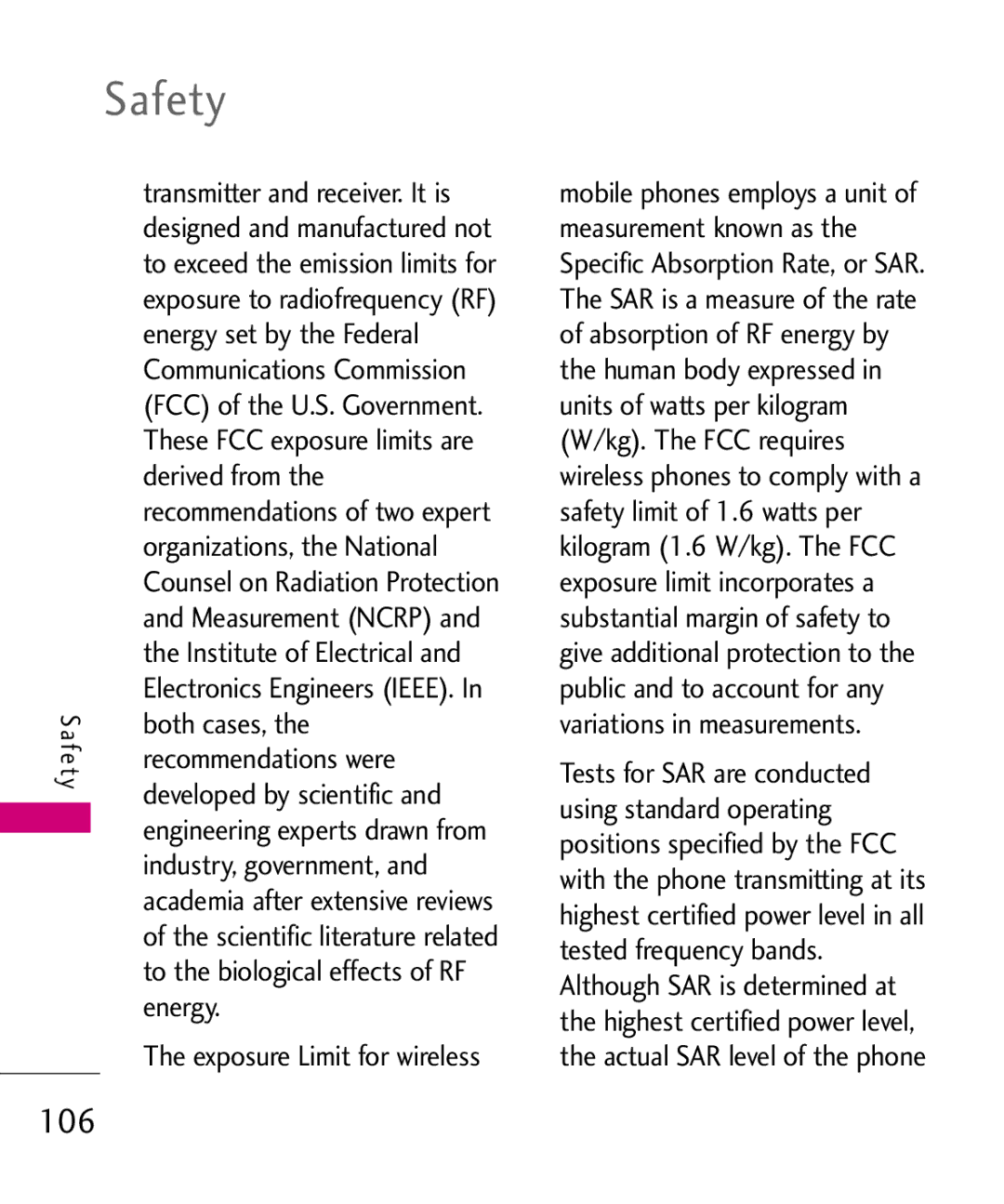Safety
|
| transmitter and receiver. It is |
|
| designed and manufactured not |
|
| to exceed the emission limits for |
|
| exposure to radiofrequency (RF) |
|
| energy set by the Federal |
|
| Communications Commission |
|
| (FCC) of the U.S. Government. |
|
| These FCC exposure limits are |
|
| derived from the |
|
| recommendations of two expert |
|
| organizations, the National |
|
| Counsel on Radiation Protection |
|
| and Measurement (NCRP) and |
Safety | the Institute of Electrical and | |
Electronics Engineers (IEEE). In | ||
|
| both cases, the |
|
| recommendations were |
|
| developed by scientific and |
|
| engineering experts drawn from |
|
| industry, government, and |
|
| academia after extensive reviews |
|
| of the scientific literature related |
|
| to the biological effects of RF |
|
| energy. |
|
| The exposure Limit for wireless |
mobile phones employs a unit of measurement known as the Specific Absorption Rate, or SAR. The SAR is a measure of the rate of absorption of RF energy by the human body expressed in units of watts per kilogram (W/kg). The FCC requires wireless phones to comply with a safety limit of 1.6 watts per kilogram (1.6 W/kg). The FCC exposure limit incorporates a substantial margin of safety to give additional protection to the public and to account for any variations in measurements.
Tests for SAR are conducted using standard operating positions specified by the FCC with the phone transmitting at its highest certified power level in all tested frequency bands. Although SAR is determined at the highest certified power level, the actual SAR level of the phone
